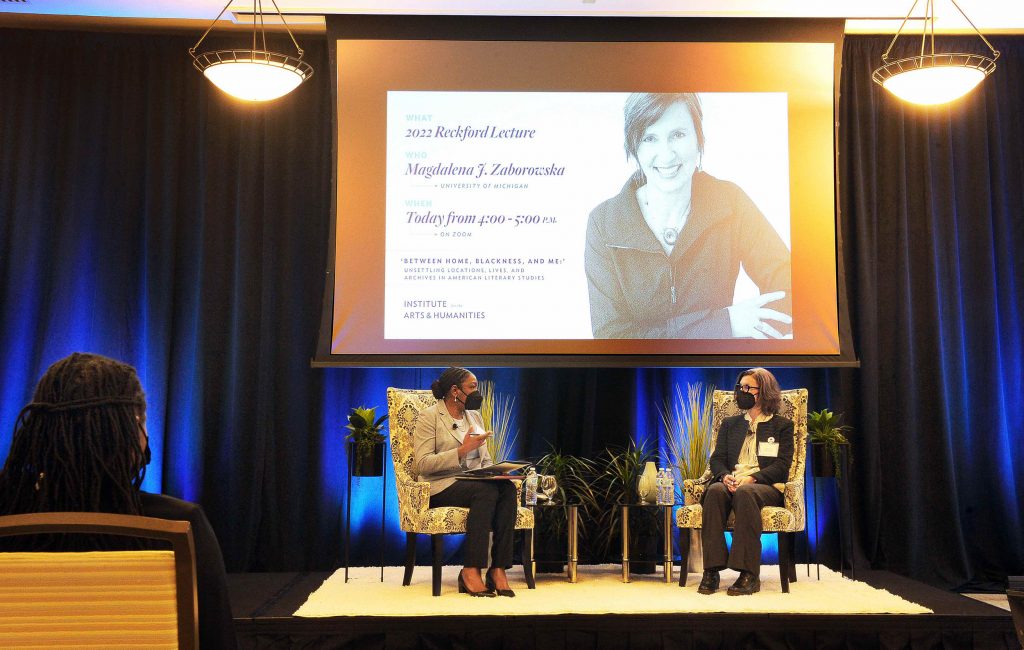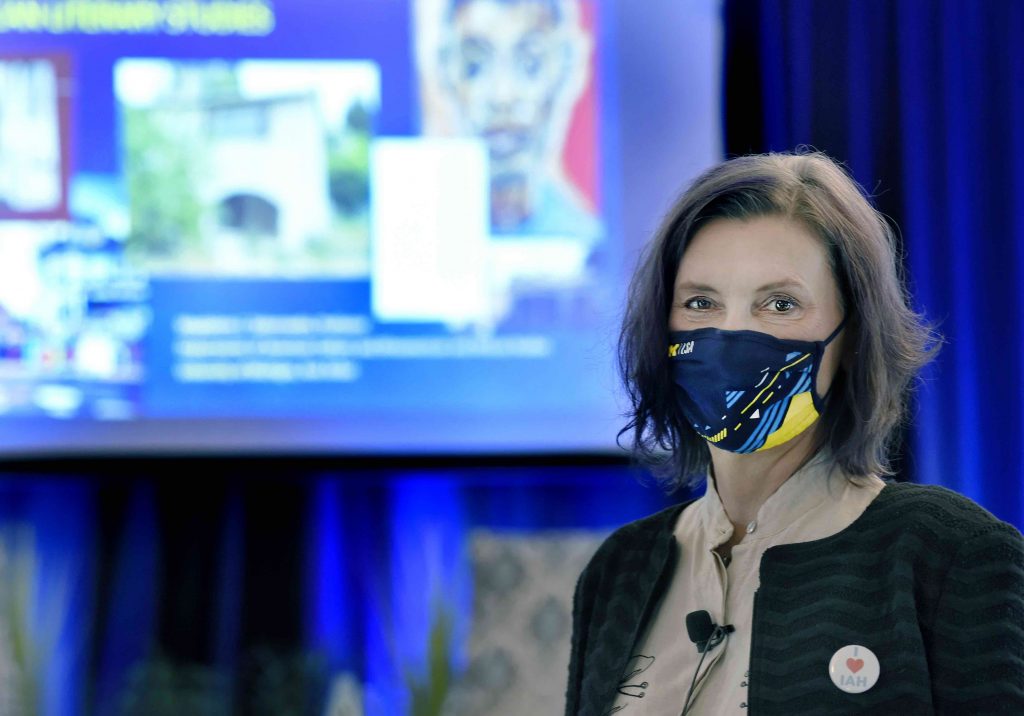‘Between Home, Blackness, and Me’
March 8, 2022 | Kristen Chavez
Reckford speaker Magdalena Zaborowska discusses James Baldwin, identity, and more

On Feb. 24, University of Michigan professor Magdalena J. Zaborowska delivered the 28th annual Mary Stevens Reckford Memorial Lecture in European Studies to a small in-person gathering in Hyde Hall and to a larger virtual audience.
In her lecture, “‘Between Home, Blackness, and Me’: Unsettling Locations, Lives, and Archives in American Literary Studies,” Zaborowska took attendees on an “illustrative journey” that included interviews with James Baldwin, photographs of the writer, and images capturing his former home and the objects contained within.
As a scholar of James Baldwin, Zaborowska approaches the writer through the three themes in her lecture’s title, borrowed from his essay “Every Goodbye Ain’t Gone,” where Baldwin writes about his reasons for living in France as “a transatlantic commuter.”

Zaborowska began by describing Baldwin’s influences, and the factors that led to him leaving the United States, including racism and homophobia. She pointed to the role that writing has in sustaining and creating connections, communities, and belonging.
“Most of all, literature invites us to refashion ourselves as readers in lieu of meeting others in person or living next door to them,” said Zaborowska.
“Reading is the only way I know that makes intimate and personal, a wide array of human experience that we share across continents, languages and national cultures: joy and pain, laughter and tears, birth and death, hatred and love,” she added.
When Zaborowska began her research on Baldwin over 20 years ago, few of the writer’s papers were available. As a result, she followed his journeys in America, to and through Europe and Asia. In the last few decades of his life, Baldwin established himself in southern France, his home colloquially called Chez Baldwin, which Zaborowska first visited in 2000.
“His home is a building we can read like a book and like a body — that is as an organic structure whose inhabitants and their possessions and stories invite literary excavation,” she observed.
Chez Baldwin was largely demolished by 2014, after it was let go by the Baldwin estate several years earlier. Some of the salvaged material objects of Baldwin’s former home have been incorporated into the National Museum of African American History and Culture in the online Chez Baldwin exhibit, on which Zaborowska also collaborated.
Zaborowska’s discussion on the objects from Baldwin’s home, and how many of his papers are not accessible to the public, evoked themes and questions raised by University Libraries staff in an earlier event, “Finding Baldwin: An Exploration of Belonging and Identity in Archives.”
Zaborowska’s current manuscript, Being Better Than the World, borrows another phrase from Baldwin. This project focuses on “Baldwin’s philosophy of black queer humanism,” she said.
That intersectionality of Baldwin’s work and identity does not lead to easy categorization, she noted, and is still met with mixed reception.
Zaborowska ended with a letter from herself to Baldwin, recognizing that his philosophy and work can help guide and heal divisions in the United States today. The end of her letter quoted Baldwin’s third novel, Another Country:
“…But don’t lose heart, dear ones, don’t lose heart. Don’t let it make you bitter. Try to understand the world’s already bitter enough. We got to try to be better than the world….”
Watch the 2022 Reckford Lecture with Magdalena Zaborowska on YouTube.
The Mary Stevens Reckford Memorial Lecture in European Studies was established in 1990 by late classics professor Kenneth J. Reckford, in honor of his wife. It is traditionally held close to Mary Reckford’s birthday on February 25. Zaborowska joins a growing list of acclaimed writers, scholars, and more in the lecture’s history of speakers, which includes author Zia Haider Rahman and poet laureate Robert Pinsky.
This year’s Reckford lecture was supported in part by the Race, Memory, and Reckoning Initiative. The Institute for the Arts and Humanities coordinated with campus partners to develop two events related to Zaborowska’s visit, including a workshop on library archival work and a reading group discussion.
Categories: News

